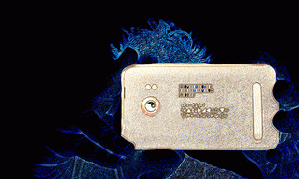An Electronic Silent Spring
A Talk in two parts by Katie Singer
given at the Techno-Utopianism and the
Fate of the Earth Teach-In
(www.ifg.org) at Cooper Union, October 25, 2014
In 1960, in a hospital a few miles uptown, my mother gave birth to me under bright, electric lights with an epidural that erased her pain and made her unconscious for my arrival. While my mother slept in a nearby room, nurses fed me commercial formula that I could not digest.
Compared to most humans born after World War II, there's nothing special about my techno-birth. Compared to most mammals, it's a recipe for abandonment and a life questioning, What is home?
Besides home, I'm looking for people who want to know technology's dangers and who'll practice self-regulation to protect nature and health. I figure I've come to the right place.
I'd like to spell out some troubling rules and studies about electronics, and some regulations we can implement ourselves. But first, let's go back a few billion years, before man-made laws or mobile phones, when this planet was a mass of gasses, water, dust and rock.
After a buildup of charge, lightning began to strike. A bombardment of lightning storms led to nucleic and amino acids, the building blocks of life. Early plants made oxygen and paved the way for animals.
Plants and animals still function by electro-chemical signals. So do our brains and hearts. Even at rest, all cells have measurable voltage. In other words, without electromagnetic energy, none of us would be here.
By 1880, we humans figured out how to generate, store and transmit electrical energy over long distances. We got electric lights. We got motors and built refrigerators. We got radio and TV.
Since 1934, our Federal Communications Commission has said, go forth and invent electronics--as long as you don't create "harmful interference." This means we can't disrupt existing radio, TV and cellular broadcasts. "Harmful interference" at the FCC has never included biological harm.
Call this exclusion of nature.
(Note: You can view every article as one long page if you sign up as an Advocate Member, or higher).






